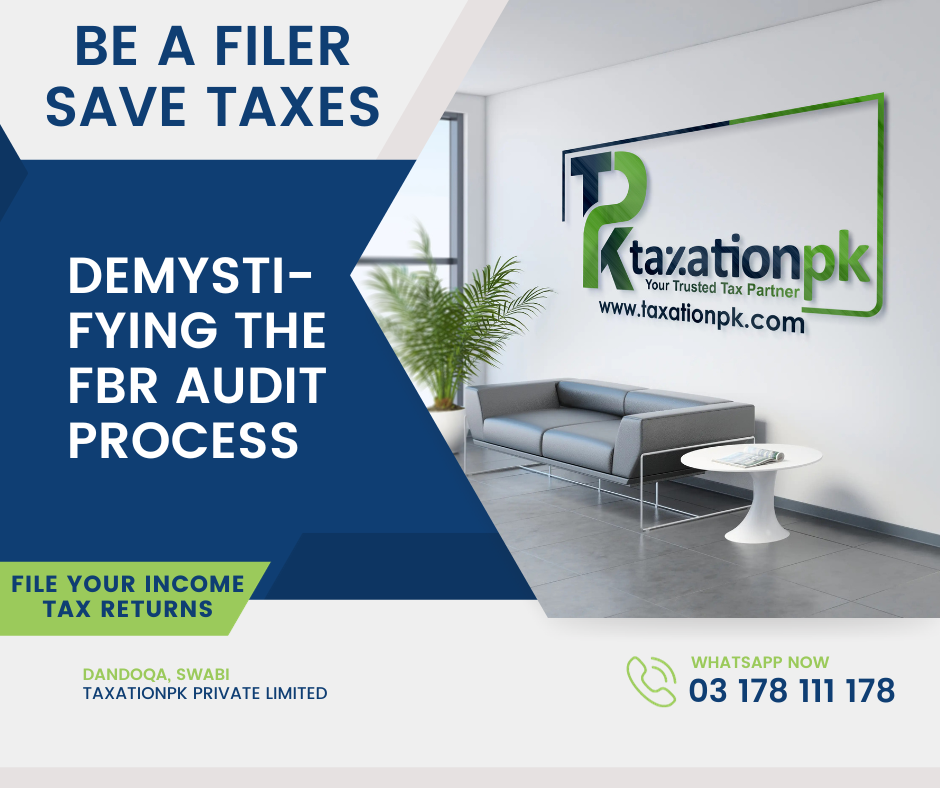Demystifying Audits: A Deep Dive into Section 214 of the Income Tax Ordinance, 2001
In the realm of Pakistani taxation, audits can raise concerns and uncertainties. However, understanding the underlying regulations empowers taxpayers to navigate the process effectively. Section 214 of the Income Tax Ordinance, 2001, plays a crucial role in dictating audit procedures and safeguarding taxpayer rights.
This article delves deep into Section 214 and its subsections, unveiling the intricacies of income tax audits in Pakistan.
Section 214A: Initiation of Audit:
- The Commissioner’s Power: This subsection grants the Commissioner of Income Tax the authority to initiate audits for any taxpayer’s income tax return for a specific assessment year. This decision can be based on various factors, including income discrepancies, specific information received, or random selection.
- Audit Notice: When an audit is initiated, the taxpayer receives a formal notice outlining the scope of the audit and the documents required for review. Cooperation with providing these documents is essential.
Section 214B: Conduct of Audit:
- Venue: This subsection outlines the Commissioner’s power to conduct audits at the taxpayer’s premises or their authorized representative’s place of business. This physical examination allows for thorough scrutiny of records and documents.
- Audit Officer’s Powers: The audit officers appointed by the Commissioner have considerable powers during the audit. They can:
- Examine accounting records, invoices, cash books, bank statements, and other relevant documents.
- Ask questions and request clarifications from the taxpayer or their representatives.
- Summon witnesses and gather additional information as needed.
- Access data through authorized means, including computer systems.
Section 214C: Confidentiality and Information Security:
- Protecting Taxpayer Information: This subsection emphasizes the confidentiality of information obtained during audits. Audit officers are bound by strict guidelines to ensure that taxpayer data is not disclosed unauthorizedly. This protects sensitive financial information from misuse.
- Prohibited Disclosures: Any unauthorized disclosure of information related to a taxpayer’s financial affairs during or after the audit can lead to penalties for the responsible individuals.
Section 214D: Best Judgment Assessment:
- Non-Cooperation Consequences: This subsection addresses scenarios where taxpayers fail to comply with audit requirements or obstruct the audit process. In such cases, the Commissioner can conduct a “Best Judgment Assessment” based on the available information and estimates.
- Appeal Right: Taxpayers have the right to appeal a Best Judgment Assessment if they disagree with the calculated taxes. They can present their case and evidence to the appellate forum for review.
Understanding Your Rights during an Audit:
- Ask questions: While cooperating with the audit process is crucial, you have the right to ask questions and clarify any doubts regarding the procedures or findings.
- Seek professional assistance: Consulting a tax advisor or lawyer can be valuable for navigating the complexities of an audit and protecting your rights.
- Maintain accurate records: Keeping thorough and systematic records of your income and expenses simplifies the audit process and strengthens your position.
- Present your case effectively: If you disagree with the audit findings, clearly and confidently present your evidence and reasoning during the appeal process.
Conclusion:
Section 214 of the Income Tax Ordinance, 2001, ensures a structured and transparent framework for income tax audits in Pakistan. By understanding its provisions and your rights as a taxpayer, you can approach an audit with less anxiety and effectively navigate the process. Remember, cooperation, transparency, and accurate record-keeping are key to a smooth and successful audit experience.







